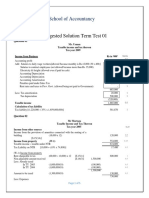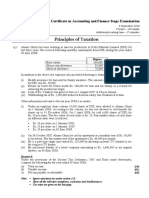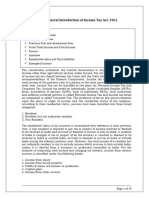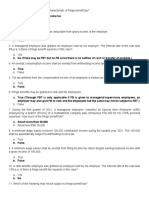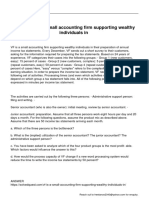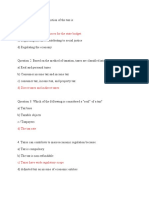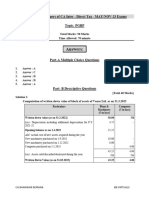0% found this document useful (0 votes)
35 views3 pagesChapter 4 (A)
This document provides an overview of basic tax concepts in Pakistan, including:
1) Tax year definitions - normal tax year runs July 1 to June 30, special tax years can be set by the Board or approved for an individual taxpayer.
2) Taxable income is calculated by taking total income minus exempt income and allowed deductions such as zakat and workers' welfare fund payments.
3) Income is classified under various heads (salary, property, business, capital gains, other sources) and tax is calculated separately for resident and non-resident taxpayers based on domestic vs foreign source income.
Uploaded by
LEARN FROM MECopyright
© © All Rights Reserved
We take content rights seriously. If you suspect this is your content, claim it here.
Available Formats
Download as PDF, TXT or read online on Scribd
0% found this document useful (0 votes)
35 views3 pagesChapter 4 (A)
This document provides an overview of basic tax concepts in Pakistan, including:
1) Tax year definitions - normal tax year runs July 1 to June 30, special tax years can be set by the Board or approved for an individual taxpayer.
2) Taxable income is calculated by taking total income minus exempt income and allowed deductions such as zakat and workers' welfare fund payments.
3) Income is classified under various heads (salary, property, business, capital gains, other sources) and tax is calculated separately for resident and non-resident taxpayers based on domestic vs foreign source income.
Uploaded by
LEARN FROM MECopyright
© © All Rights Reserved
We take content rights seriously. If you suspect this is your content, claim it here.
Available Formats
Download as PDF, TXT or read online on Scribd
/ 3








